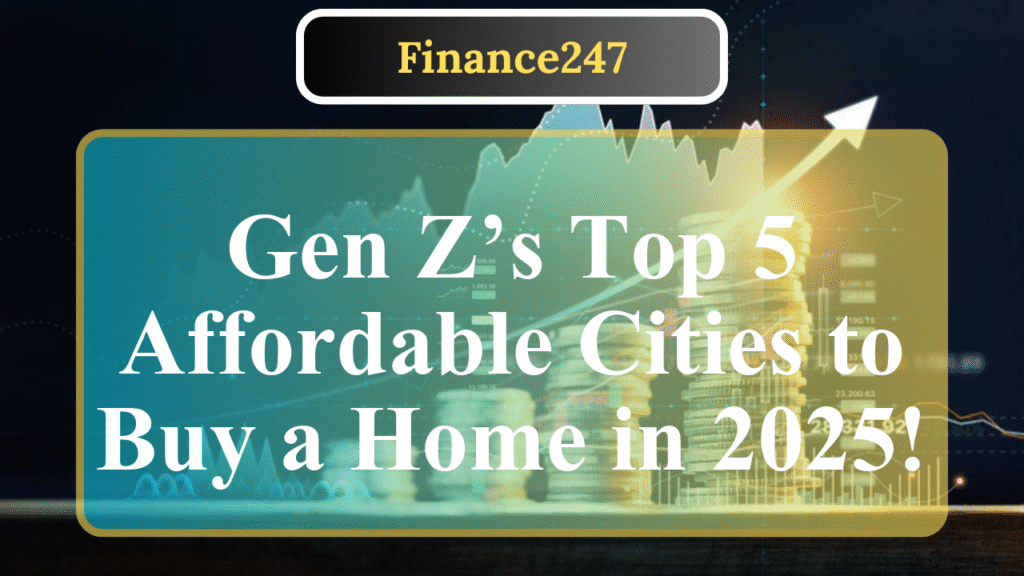Gen Z faces a tough housing market, but affordable cities in the Midwest and South offer hope. Fort Wayne, Detroit, Corpus Christi, Memphis, and Lincoln stand out for low home price-to-income ratios, strong job markets, and high Gen Z homeownership rates. These cities balance affordability with quality of life, making them ideal for young buyers seeking financial stability.
Top U.S. Cities for Gen Z to Purchase Homes in 2025
For Generation Z, born between 1997 and 2012, buying a home in 2025 is a daunting task amid high mortgage rates, rising home prices, and economic uncertainties. However, certain U.S. cities provide promising opportunities due to affordable housing, favorable job markets, and growing Gen Z homeownership rates. Based on recent analyses from sources like Point2 Homes, WalletHub, and CoreLogic, here are the five best cities for Gen Z to buy a home in 2025, evaluated on metrics such as home price-to-income ratios, median home prices, unemployment rates for those under 25, and quality of life.
1. Fort Wayne, Indiana
Fort Wayne tops the list with a score of 84.2 out of 100 for Gen Z homebuying opportunities, driven by its affordability and economic stability. The median home price is approximately $179,000, with a home price-to-income ratio of 4.8, meaning homes cost less than five times the median Gen Z income of $37,500 annually. The city boasts a low Gen Z unemployment rate of 4.1% and a 14% homeownership rate among young adults. Fort Wayne’s strong job market, particularly in manufacturing and healthcare, combined with a low cost of living, makes it a haven for first-time buyers. The city also offers cultural amenities like the Fort Wayne Museum of Art and a growing downtown, appealing to Gen Z’s desire for lifestyle balance.
2. Detroit, Michigan
Detroit ranks high due to its remarkably low median home price of around $55,000, the lowest among the top cities, with a price-to-income ratio of just 3.1. Despite a higher Gen Z unemployment rate of 11%, the city has seen a 6.1% decline in home prices year-over-year, creating a buyer’s market. Over 22% of homes are vacant, increasing inventory and negotiation power. Detroit’s Gen Z homeownership rate is an impressive 16.7%, supported by revitalization efforts and job growth in tech and automotive sectors. The city’s cultural scene, including music festivals and affordable urban living, adds to its appeal for young buyers willing to invest in a fixer-upper.
3. Corpus Christi, Texas
Corpus Christi scores 80.55 out of 100, with a median home price of about $189,000 and a price-to-income ratio of 4.5. The city’s Gen Z homeownership rate is 12.5%, bolstered by stable home values and a growing inventory. Its coastal location offers a vibrant lifestyle with access to beaches, outdoor activities, and a thriving job market in energy and healthcare. Low living costs and state programs for first-time buyers, like those from the Texas Department of Housing, make Corpus Christi a strong contender for Gen Z seeking affordable homeownership with Southern charm.
4. Memphis, Tennessee
Memphis is a standout with a median home price of approximately $150,000 and a price-to-income ratio of 5.3. Despite a higher youth unemployment rate, the city’s home prices dropped 2.2% recently, enhancing affordability. Gen Z homeownership stands at 10.6%, driven by a robust music and cultural scene that attracts young professionals. The job market in logistics and healthcare, combined with a low cost of living, makes Memphis a practical choice. Programs like FHA loans, requiring only 3.5% down, further ease entry for Gen Z buyers.
5. Lincoln, Nebraska
Lincoln rounds out the list with a score of 78.7 out of 100, featuring a median home price of around $250,000 and a price-to-income ratio of 5.0. The city’s Gen Z unemployment rate is low, and its homeownership rate is competitive. Home to the University of Nebraska, Lincoln offers a strong job market in education, government, and tech, alongside a vibrant downtown with cultural events and outdoor recreation. Stable home prices and access to state-backed loan programs make it an attractive option for young buyers seeking affordability and growth potential.
These cities, primarily in the Midwest and South, share common traits: lower home price-to-income ratios, declining or stable home prices, and strong job markets tailored to entry-level professionals. Gen Z buyers are leveraging strategies like FHA loans, family assistance, or co-buying to overcome financial hurdles. For instance, 30% of Gen Z homeowners took second jobs to save for down payments, while 36% used family gifts, according to Investopedia. Unlike coastal metros like San Francisco or New York, where home prices can be 20 times median incomes, these cities offer a realistic path to homeownership.
Disclaimer: This article is for informational purposes only and not financial advice. Consult a financial advisor before making homebuying decisions. Data sourced from Point2 Homes, WalletHub, CoreLogic, and Investopedia reports.


